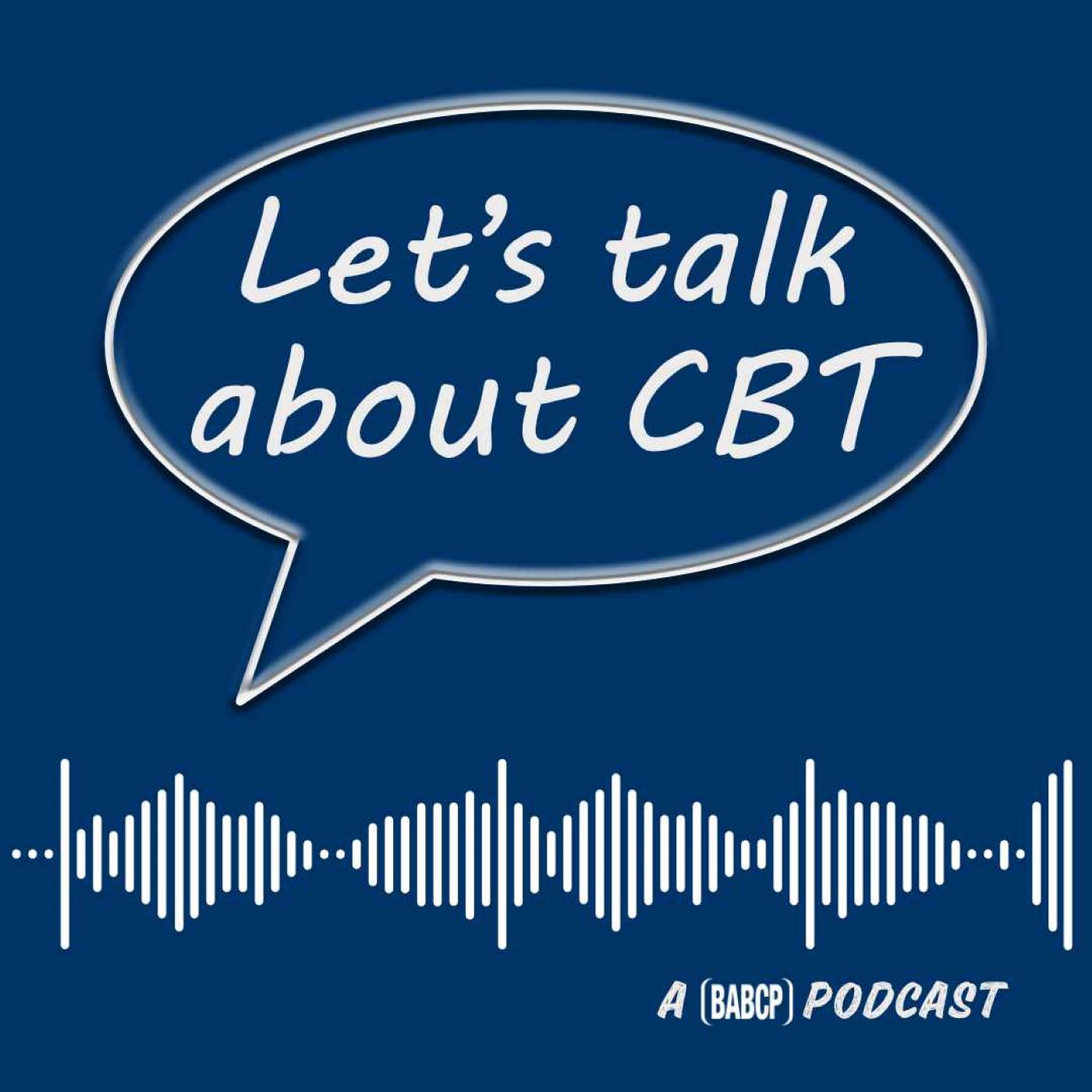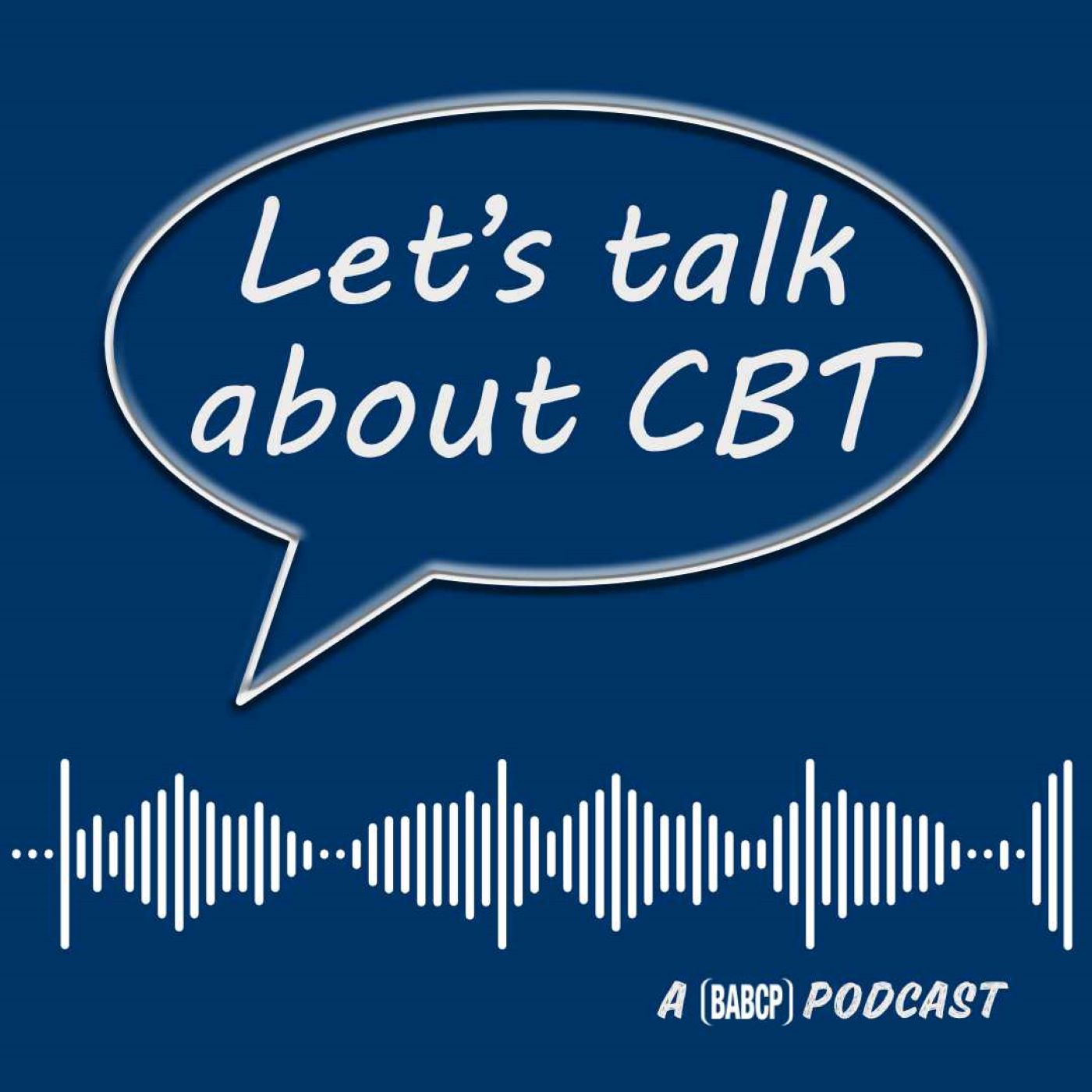Loneliness for Children & Young People During the Pandemic
Description
 What does existing research tell us about the possible impact of the pandemic on children and young people's mental health? Dr Lucy Maddox speaks with Dr Maria Loades about Maria and colleagues' recent rapid review of the literature on isolation and mental health, and what CBT principles suggest can be helpful to head off problems, in particular with loneliness during the pandemic.
What does existing research tell us about the possible impact of the pandemic on children and young people's mental health? Dr Lucy Maddox speaks with Dr Maria Loades about Maria and colleagues' recent rapid review of the literature on isolation and mental health, and what CBT principles suggest can be helpful to head off problems, in particular with loneliness during the pandemic.
Show Notes and Transcript
Podcast episode produced by Dr Lucy Maddox for BABCP
Maria recommended lots of helpful resources on loneliness and social isolation which we've listed here:
Books
Together: Loneliness, Health And What Happens when we find Connection – Vivek Murthy https://www.amazon.co.uk/Together-Loneliness-Health-Happens-Connection/dp/1788162773
Overcoming social anxiety and shyness https://www.amazon.co.uk/Overcoming-Social-Anxiety-Shyness-Gillian/dp/1849010005
Overcoming your children’s social anxiety and shyness https://www.amazon.co.uk/dp/1845290879/ref=cm_sw_em_r_mt_dp_U_6p13EbZ0ER2XD
Websites
Mind - https://www.mind.org.uk/information-support/tips-for-everyday-living/loneliness/about-loneliness/
How to cope with loneliness during coronavirus – https://www.verywellmind.com/how-to-cope-with-loneliness-during-coronavirus-4799661
TEDx talk by Will Wright ‘Loneliness is literally killing us’ - https://www.youtube.com/watch?v=ruh6rN5UrME&feature=youtu.be
Loneliness and isolation in teenagers – a parent’s guide https://www.bupa.co.uk/newsroom/ourviews/2019/05/teenager-loneliness
As always if you want more information on BABCP check out www.babcp.com
If you want to find a CBT accredited therapist check the register of BABCP accredited therapists https://www.cbtregisteruk.com/
Articles
The rapid review we talked about is here: https://www.ncbi.nlm.nih.gov/pmc/articles/PMC7267797/
Podcast
That podcast episode with Shirley Reynolds on teenagers doing more of what matters to them is here: https://letstalkaboutcbt.libsyn.com/helping-teenagers-do-more-of-what-matters-to-them
Transcript
Lucy: Hi and welcome to Let’s Talk About CBT with me, Dr Lucy Maddox. In this episode brought to you by the British Association for Behavioural and Cognitive Psychotherapies, we think about the possible effects of quarantine on children and young people’s mental health. I’ll let my guest for today introduce herself.
Maria: My name is Dr Maria Loades and I’m a clinical psychologist and I work at the University of Bath as a lecturer on the doctorate and clinical psychology programme.
Lucy: Maria and her colleagues have been especially interested in the effects of the pandemic on children and young people. She co-authored a rapid review of evidence to try to understand what this effect is likely to be.
Maria: What we wanted to do was to look at two things. One is the studies that have been done that have looked at social isolation in a pandemic context in children and young people and how that’s impacted on their mental health. Secondly, we were also interested in thinking, okay, if these measures mean that young people experience this increase in loneliness, what do we know about how loneliness might be related to mental health for children and young people.
Lucy: So obviously there’s not loads of pandemics to study, but you’re trying to work out from what’s been done before, how does loneliness impact on mental health problems for children and young people? You turned the review around really quickly didn’t you, because normally it takes months to do something like this.
Maria: Yes, we really felt like it was particularly important to pull this together as quickly as we could to inform policy and practice going forward.
Lucy: And what did you find?
Maria: As we expected, there isn’t much known about the impact of pandemics specifically. There was just one study that looked at mental health in children and young people in a pandemic context and it did find that there was significantly increased rates of mental health problems for those who had experienced disease containment measures like quarantine or social isolation. And the study focused on trauma symptoms and they found really much higher rates of trauma symptoms amongst those young people who had experienced those disease containment measures. But that is only one study.
More broadly though, there were over 60 studies that looked at loneliness and mental health. And we found that there is good evidence that loneliness increases the chances of developing mental health problems, both anxiety and depression, up to nine years later.
So there’s not only a loneliness and depression and anxiety linked when we measured them at the same point in time, but there’s good evidence that being lonely now will mean an increase in risk of mental health problems at a later date.
Lucy: Maria thought one study was particularly interesting. It looked at duration of loneliness compared to intensity of loneliness.
Maria: Now what we mean by that is how long the loneliness is going on for, as compared to how strong the loneliness is. And what this study found, and it was a big study, is that actually the longer we’re lonely for, the more closely linked that is with mental health problems than how strong the loneliness is.
Lucy: What are some things that might be helpful to head off these problems?
Maria: We know that loneliness is that feeling we get when our social connections are not what we would want them to be. In the current context, of course, socially connecting in the normal ways, like at school or at college, for young people, is curtailed. But we can still connect in other ways.
Lucy: Maria emphasised how important connecting for play dates over video calls can be, as well as meeting up for play now lockdown is easing, and using more old school ways of communicating as well, like sending friends cards or letters.
Maria: The other thing we can do is more broadly to think about how we promote activities amongst young people that support wellbeing in every which way we can. As well as making sure we’re providing a listening ear for young people and being open to hearing what they might be worried about or what they might be feeling sad about and problem solving that where we can. Actually giving them permission, this is a really unusual circumstance and it’s okay and it’s normal for it not to feel very good.
Lucy: Some things that we know promote wellbeing include regular exercise, good quality sleep, healthy eating and time spent on activities that young people enjoy and feel proud of.
Maria: As one goes for a walk you see rainbows in the windows and my little one looks and points and knows that those rainbows mean that there are other children out there. And I think that’s incredibly helpful in terms of feeling a sense of community, connectedness, which also helps to overcome that loneliness.
Lucy: So although there may be an increased risk of mental health problems as a result of the pandemic, there’s also lots and lots that we can do that would be protective.
Maria: Definitely. I think it’s really important too that we make a distinction between young people who might be feeling lonely now and during this context, but who were pretty well socially connected beforehand. And of course, other young people who might have been lonely beforehand and this has maybe made things worse, or that their loneliness is ongoing at this stage.
For those young people who


















